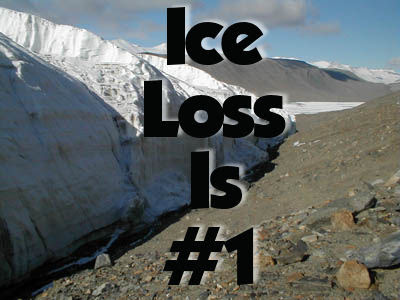 A five nation scientific team has published new evidence that even a slight rise in carbon dioxide in the atmosphere affects the stability of the West Antarctic Ice Sheet (WAIS). The research, which was published in the March 19 issue of the journal Nature, is based on investigations by a 56 member team of scientists conducted on a 1,280-meter long sedimentary rock core taken from beneath the sea floor under Antarctica's Ross Ice Shelf during the first project of the ANDRILL (ANtarctic geological DRILLing) research program.
A five nation scientific team has published new evidence that even a slight rise in carbon dioxide in the atmosphere affects the stability of the West Antarctic Ice Sheet (WAIS). The research, which was published in the March 19 issue of the journal Nature, is based on investigations by a 56 member team of scientists conducted on a 1,280-meter long sedimentary rock core taken from beneath the sea floor under Antarctica's Ross Ice Shelf during the first project of the ANDRILL (ANtarctic geological DRILLing) research program."The sedimentary record indicates that under global warming conditions that were similar to those projected to occur over the next century, protective ice shelves could shrink or even disappear and the WAIS would become vulnerable to melting," said Ross Powell, a professor of geology at Northern Illinois University. "If the current warm period persists, the ice sheet could diminish substantially or even disappear over time. This would result in a potentially significant rise in sea levels." Ice World











